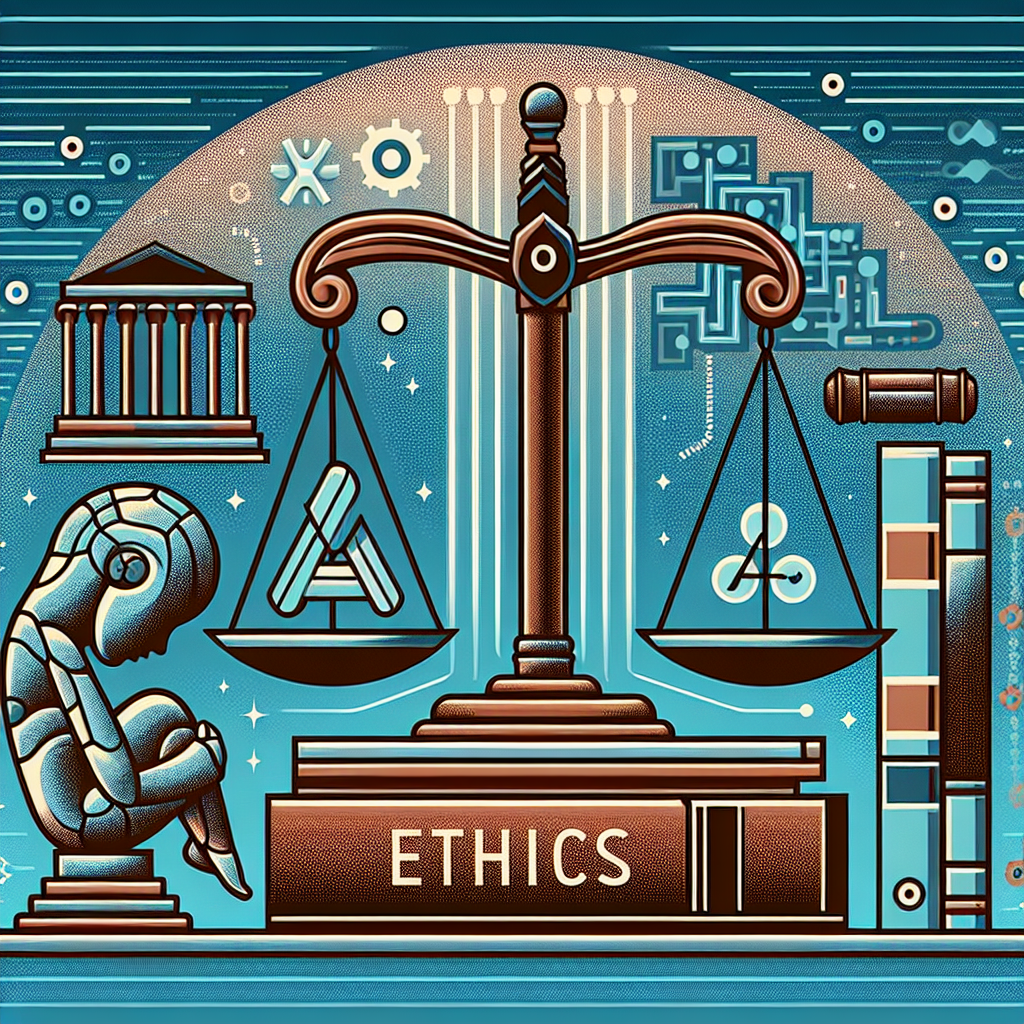Artificial Intelligence (AI) has become an integral part of our daily lives, with applications ranging from personal assistants like Siri and Alexa to self-driving cars and medical diagnosis systems. As AI technology continues to advance, so too does the need for ethical considerations in its governance and policy-making. The role of ethics in AI governance is crucial to ensuring that AI systems are developed and deployed in a responsible and ethical manner.
Ethics in AI governance refers to the ethical principles and guidelines that govern the development, deployment, and use of AI systems. This includes issues such as accountability, transparency, fairness, and privacy. Ethical considerations in AI governance are important for several reasons. First, AI systems have the potential to impact individuals and society in significant ways, and ethical guidelines can help ensure that AI systems are developed and used in ways that benefit society as a whole. Second, AI systems are often complex and opaque, making it difficult to understand how they work and to hold them accountable for their decisions. Ethical guidelines can help ensure that AI systems are transparent and accountable. Finally, ethical guidelines can help ensure that AI systems are developed and used in ways that respect the rights and dignity of individuals.
One of the key challenges in AI governance is the lack of clear guidelines and standards for ethical AI development and deployment. There is currently no universal set of ethical guidelines that govern the development and deployment of AI systems. This lack of clear guidelines can lead to ethical issues such as bias, discrimination, and privacy violations in AI systems. To address these challenges, there have been calls for the development of ethical frameworks and guidelines for AI governance.
In recent years, there have been several initiatives to develop ethical guidelines for AI governance. For example, the European Commission has published a set of ethical guidelines for trustworthy AI, which include principles such as transparency, accountability, and fairness. The IEEE has also developed a set of ethical guidelines for AI developers, which include principles such as accountability, transparency, and privacy. These initiatives are important steps towards developing ethical guidelines for AI governance, but there is still much work to be done to ensure that AI systems are developed and used in a responsible and ethical manner.
In addition to ethical guidelines, there is also a need for regulatory frameworks to govern the development and deployment of AI systems. Regulatory frameworks can help ensure that AI systems comply with ethical guidelines and that they are developed and used in ways that benefit society. Regulatory frameworks can also help address issues such as bias, discrimination, and privacy violations in AI systems. However, developing regulatory frameworks for AI governance is challenging due to the rapidly evolving nature of AI technology and the global nature of AI development and deployment.
Another key challenge in AI governance is the lack of accountability for AI systems. AI systems are often opaque and complex, making it difficult to understand how they work and to hold them accountable for their decisions. This lack of accountability can lead to ethical issues such as bias, discrimination, and privacy violations in AI systems. To address this challenge, there have been calls for the development of mechanisms for accountability in AI governance, such as auditability, explainability, and oversight.
In conclusion, the role of ethics in AI governance is crucial to ensuring that AI systems are developed and deployed in a responsible and ethical manner. Ethical guidelines can help ensure that AI systems are developed and used in ways that benefit society as a whole, and regulatory frameworks can help ensure that AI systems comply with ethical guidelines. Developing mechanisms for accountability in AI governance is also important to address issues such as bias, discrimination, and privacy violations in AI systems. By addressing these challenges, we can ensure that AI technology continues to advance in ways that benefit society while respecting the rights and dignity of individuals.
FAQs:
Q: What are some ethical issues in AI governance?
A: Some ethical issues in AI governance include bias, discrimination, privacy violations, and lack of transparency and accountability.
Q: Why is ethics important in AI governance?
A: Ethics is important in AI governance to ensure that AI systems are developed and deployed in a responsible and ethical manner, and to address issues such as bias, discrimination, and privacy violations.
Q: What are some initiatives to develop ethical guidelines for AI governance?
A: Some initiatives to develop ethical guidelines for AI governance include the European Commission’s ethical guidelines for trustworthy AI and the IEEE’s ethical guidelines for AI developers.
Q: What are some challenges in AI governance?
A: Some challenges in AI governance include the lack of clear ethical guidelines and standards, the lack of regulatory frameworks, and the lack of accountability for AI systems.
Q: How can we address ethical issues in AI governance?
A: We can address ethical issues in AI governance by developing ethical guidelines, regulatory frameworks, and mechanisms for accountability in AI systems.

